This post may contain affiliate links that at no additional cost to you, I may earn a small commission.
Is Nivea Cruelty-Free?
☠️ Nivea is NOT cruelty-free in 2023. Nivea allows its products to be tested on animals when required by law, including when selling in stores in mainland China.
Nivea’s Animal Testing Policy
When asking, does Nivea test on animals? We must look beyond to ensure none of Nivea’s ingredients or suppliers test on animals. And they don’t sell in any country or under conditions that may require animal testing by law.
To assess whether brands are cruelty-free, I always start with the company’s official animal testing policy on their website.
On Nivea’s website, they claim they do not carry out any animal tests on their products or ingredients, unless it is mandatory by law.
See below for a screenshot of what’s currently stated on Nivea’s website:
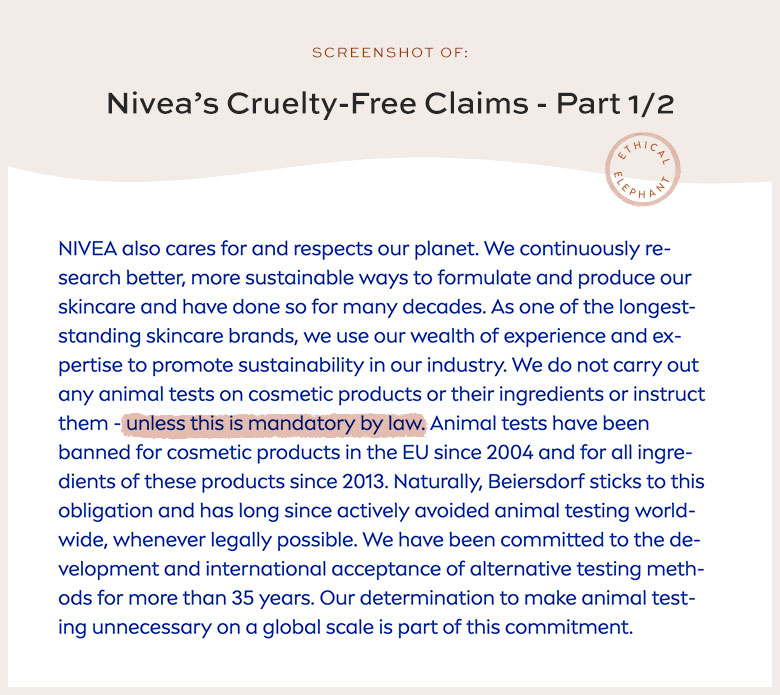
They also have a link where you can read more about Nivea’s ‘Commitment Against Animal Testing’, where they go on to state China’s animal testing regulations.
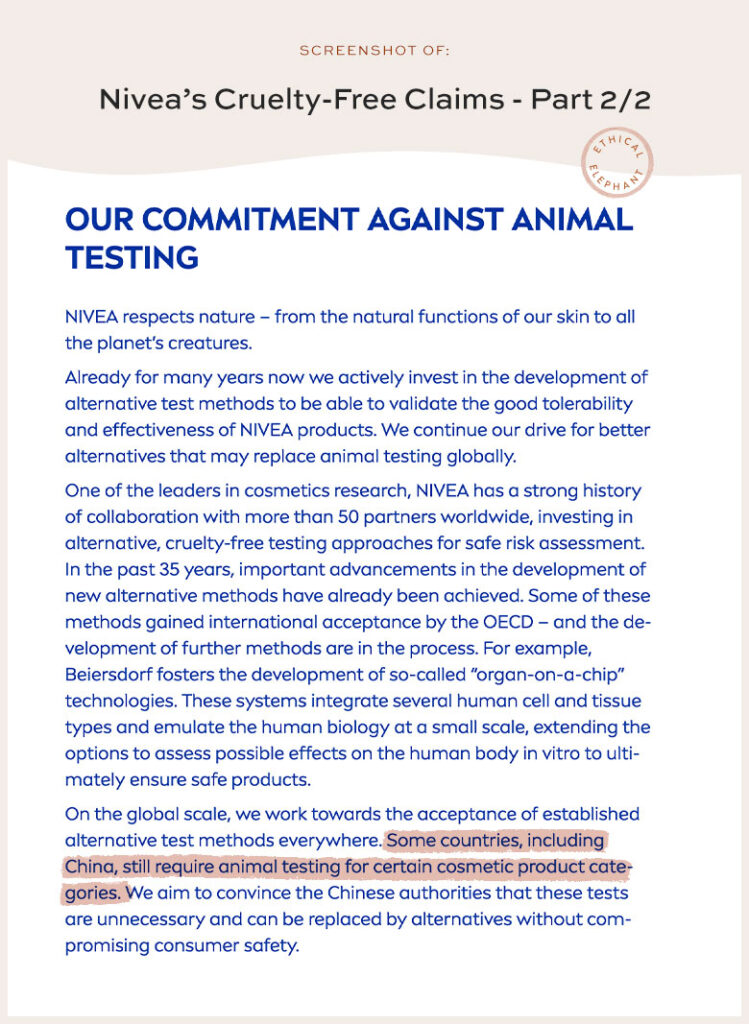
Policies stating China’s animal testing laws usually imply the company is selling its products in mainland China. That’s because cosmetics sold in stores in mainland China are required by law to be tested on animals.
Is Nivea Sold in China?
In my research, I discovered that Nivea products are indeed sold in stores in mainland China.
Below is a screenshot of Nivea’s Chinese website:
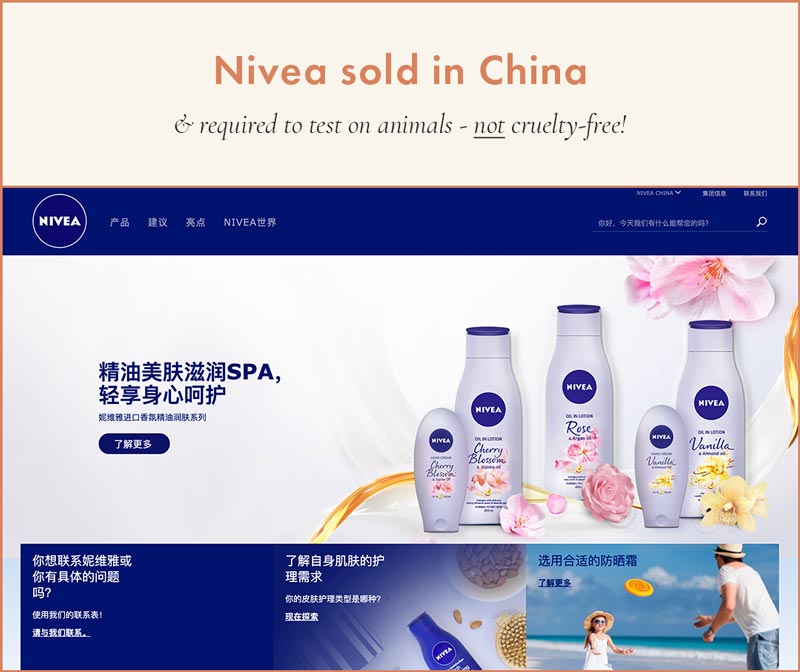
But Doesn’t China No Longer Test on Animals?
With the recent changes to China’s animal testing laws, cosmetic companies can now export and sell some of their cosmetics in China without animal testing only if they meet ALL of the following preconditions first.
- ONLY sell ‘general’ cosmetics (like makeup, skincare, haircare, nail polish, and perfumes)
- must NOT sell any ‘special’ cosmetics like sunscreens, hair dye, hair perming, or other cosmetics claiming new efficacy
- must NOT sell products designed for infants or children
- must NOT sell products that contain a ‘New Cosmetic Ingredient’
- AND if post-market testing is required, then the company must have a policy in place where it will RECALL its products rather than allow its products to be tested on animals
Also, products must meet ONE of the following in order to avoid animal testing in China:
- manufactured in China, or the final assembly is in China
- if manufactured outside of China and then exported to China, companies must obtain the proper product safety certificates and documents
However, it’s not stated anywhere that Nivea has taken any steps to meet the above preconditions in order to avoid animal testing while selling in China.
Follow the highlighted lines in the graphic below to see why most cosmetics sold in China (like Nivea) are still required by law to be tested on animals in 2023.
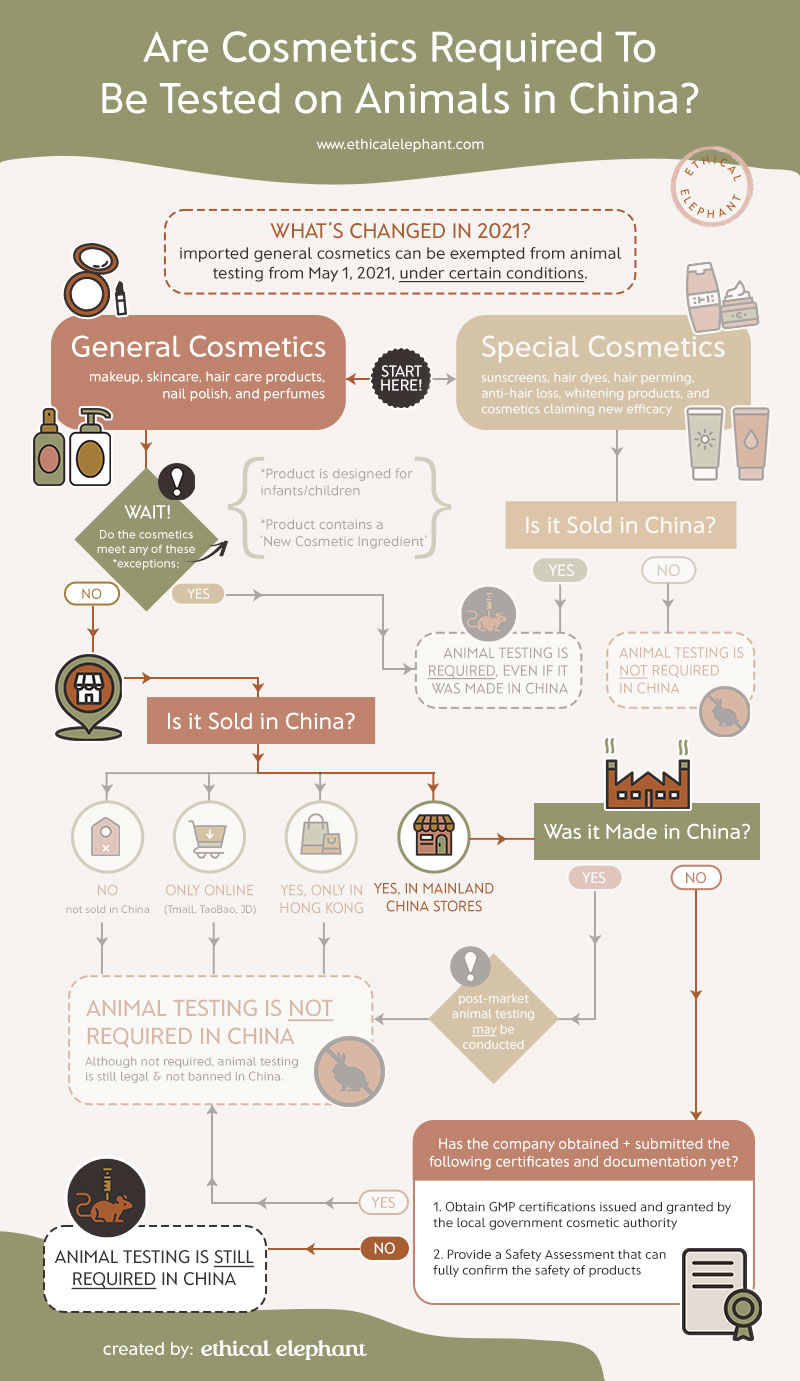
Because Nivea has decided to sell in mainland China stores, they must consent and pay to have their products tested on animals. That’s why most cosmetics brands selling in mainland China cannot be considered cruelty-free in 2023.
Although Nivea may not be conducting these animal tests themselves, they knowingly allow Chinese authorities to test their products on animals in order to sell in China.
For those reasons, we would not consider Nivea to be cruelty-free by our standards.
☕️ Every week, I continue to reach out to new brands while trying my best to keep current brands updated. If you found any of my posts or guides helpful, consider Buying Me A Coffee! I would greatly appreciate it! ❤️
Cruelty-Free Policies
Many truly cruelty-free brands have chosen not to sell their products in China under conditions where animal tests may be required. Unfortunately, Nivea refuses to do the same and therefore cannot be considered cruelty-free.
At ethical elephant, we always assess a company’s cruelty-free policy using our Cruelty-Free Checklist. This ensures no animal testing was performed by the brand itself, its suppliers, or by any third parties, including when required by law.
See below for our complete cruelty-free checklist. Since Nivea already does not meet the last two, we cannot classify the brand as being cruelty-free.
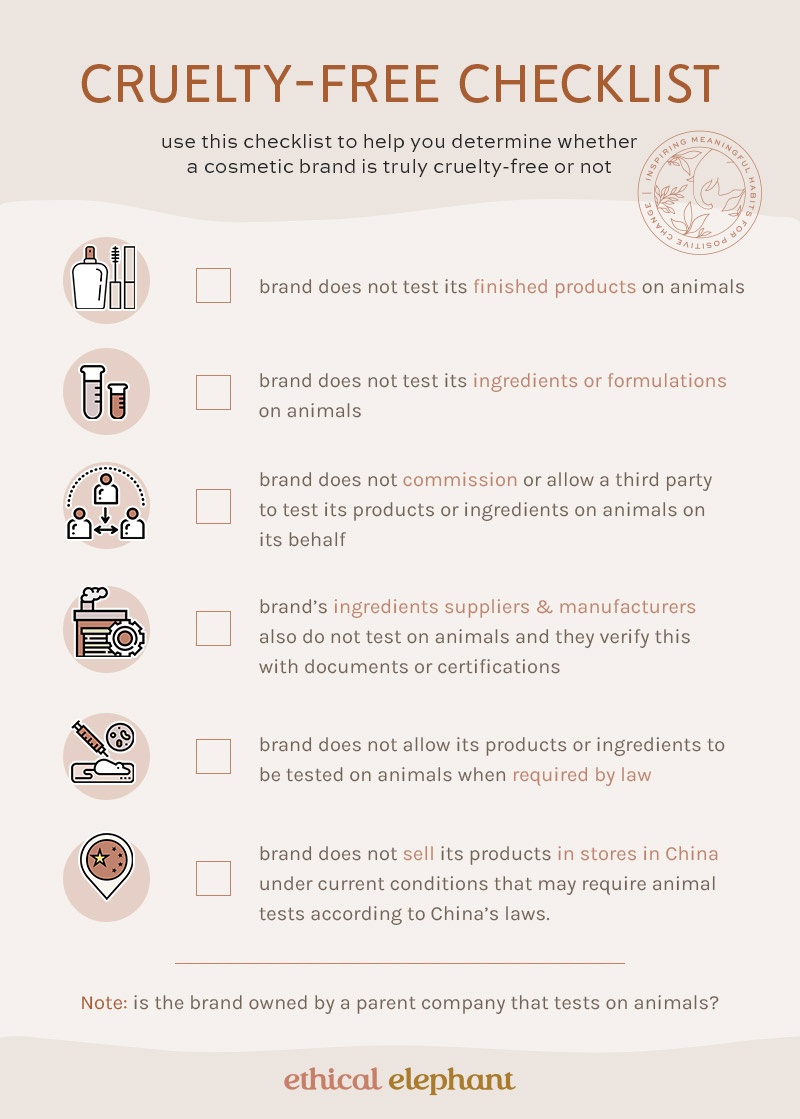
Is Nivea Certified Cruelty-Free?
Nivea is not certified cruelty-free by any third-party cruelty-free certifications like Leaping Bunny or PETA.
Since Nivea is not certified cruelty-free by a third party, no one is substantiating or auditing Nivea’s cruelty-free commitments and claims.
Is Nivea Owned By A Non-Cruelty-Free Parent Company?
Yes. Nivea is owned by Beiersdorf, parent corporation that still engages in animal testing in 2023.
Some cruelty-free consumers may choose to purchase and support cruelty-free brands owned by animal-tested parent corporations as they hope it will convince the parent company to become cruelty-free.
But in this case, Nivea is NOT cruelty-free, and neither is its parent corporation, Beiersdorf.
Does Nivea Test on Animals?
To wrap up, Nivea allows its products to be tested on animals when required by law, like when selling in China. Therefore, we would NOT consider Nivea to be a cruelty-free brand.
Currently, Nivea is on our List of Brands to Avoid – Animal Tested.
Is Nivea Vegan?
❌ Nivea is NOT vegan. Nivea claims to offer some “vegan” options that are free of animal-derived ingredients, but Nivea engages in animal testing in some capacity, so we wouldn’t consider any Nivea products vegan at this time.
In order for products to be considered vegan by ethical elephant’s standards, the products and their ingredients must not be tested on animals anywhere in the world. Also, they must not contain any animal-derived ingredients or by-products.
Cruelty-Free Alternatives to Nivea:
Looking for a cruelty-free option to Nivea, here are some of our recommendations:
- Dove *owned by Unilever
- Shea Moisture *owned by Unilever
- The Body Shop
- Acure
- Lush
- Derma E






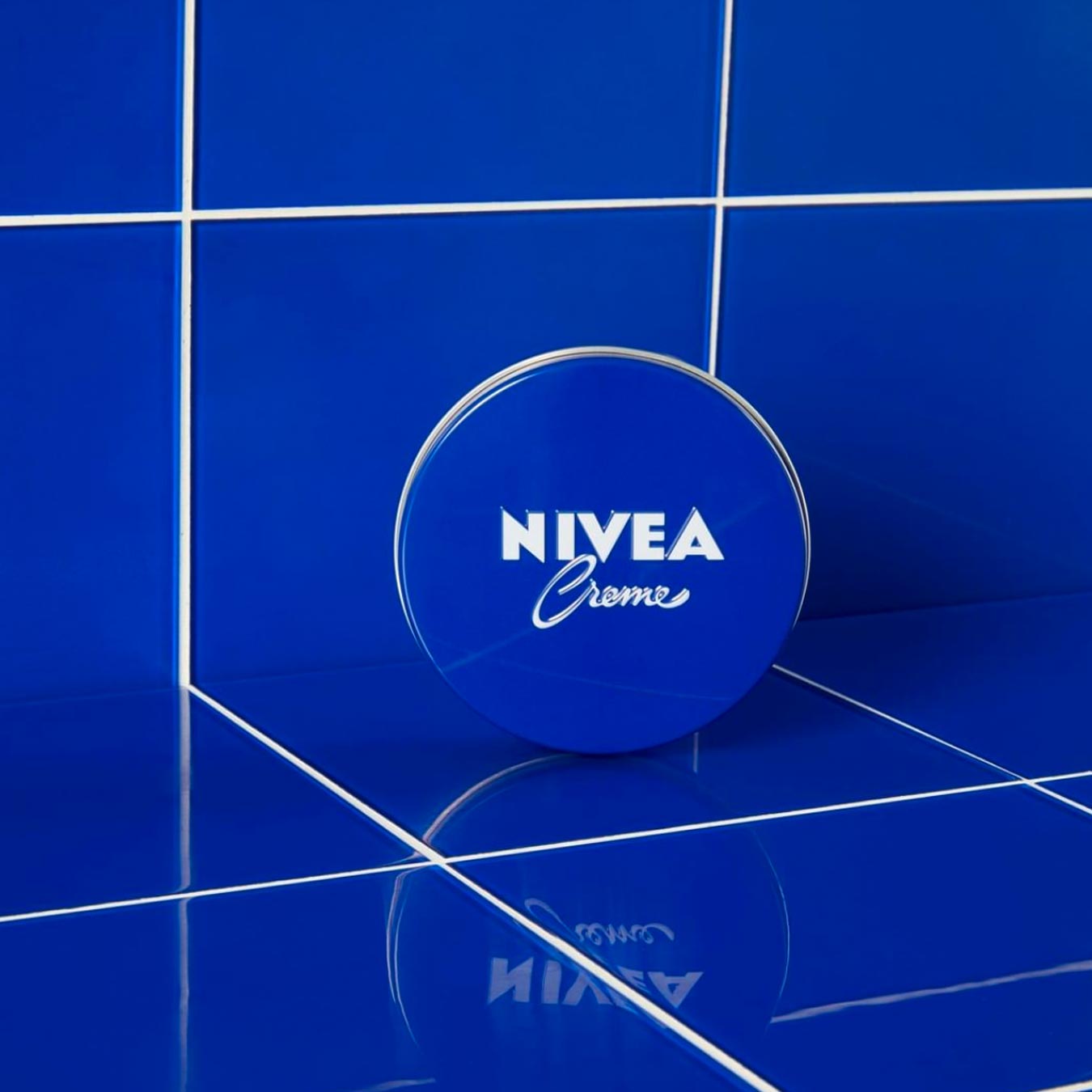
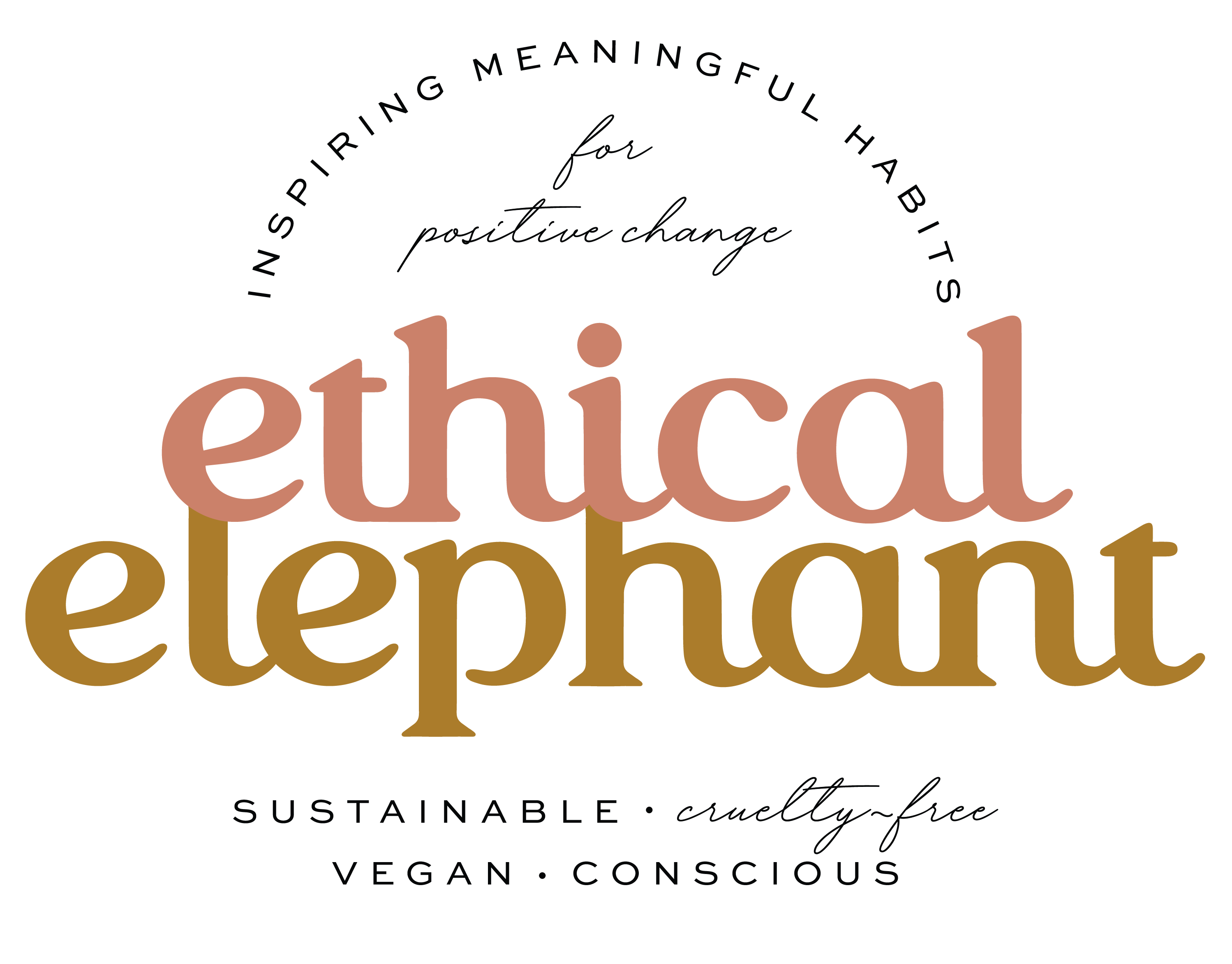
14 thoughts on “Nivea (Beiersdorf)”
I have also used the Nivea brand for a long time and in my ignorance thought that they would never have used animals for testing (it’s archaic and for people who call themselves ‘scientists’, shows sheer stupidity in their methods). I have found a few cosmetic brands that are free from animal testing and have moved towards them. There are so many options and I agree that if we want these products to be safe for human use, they should be tested on humans or not be used at all! Awareness is key though, so keep up the good work, Vicky, and hopefully more people (especially women) will take a stand against these companies!